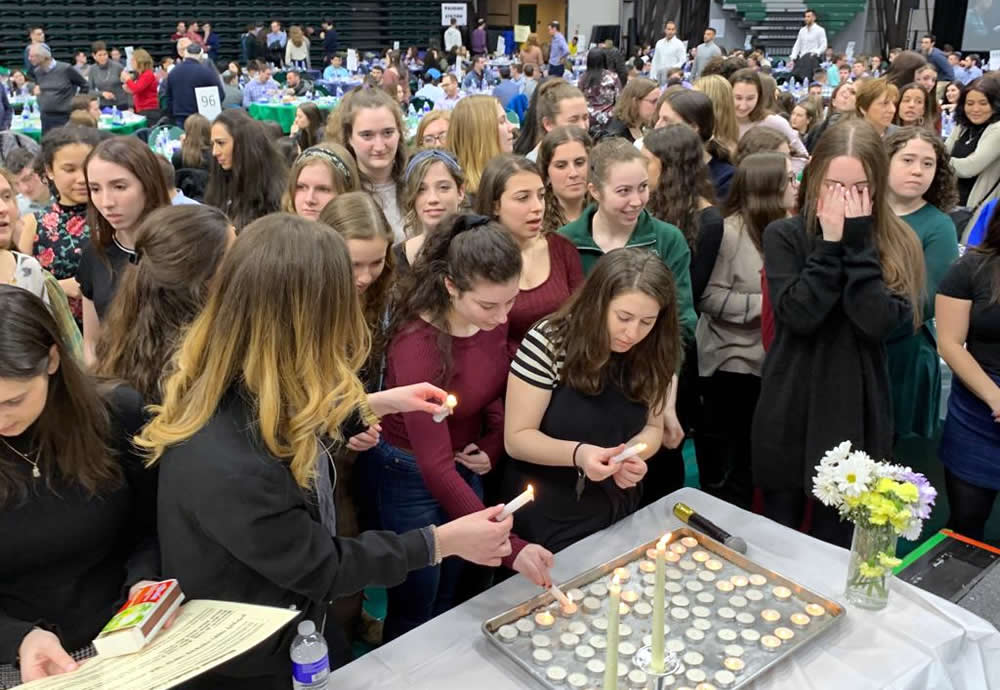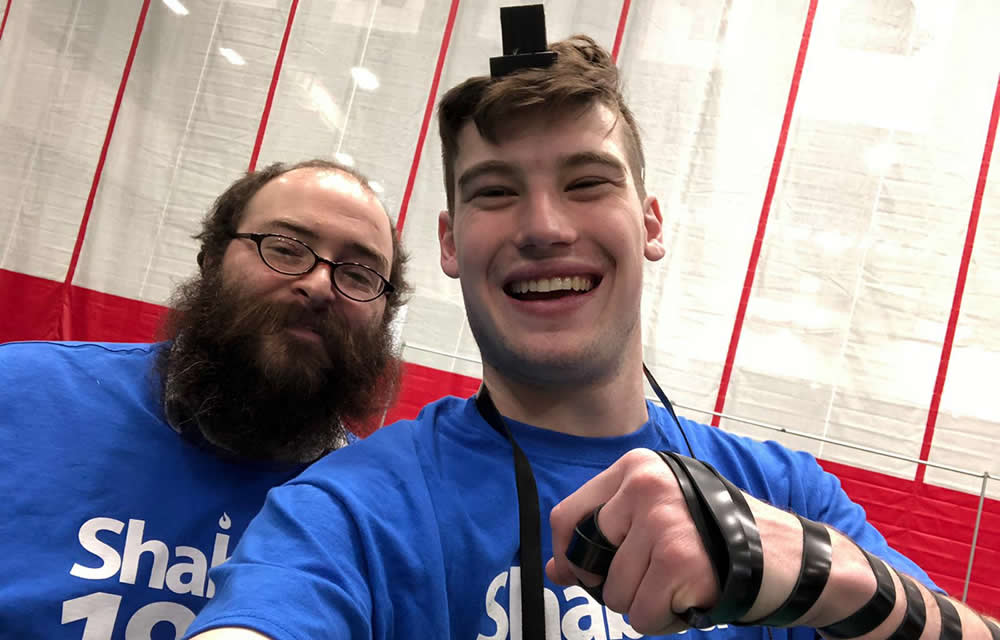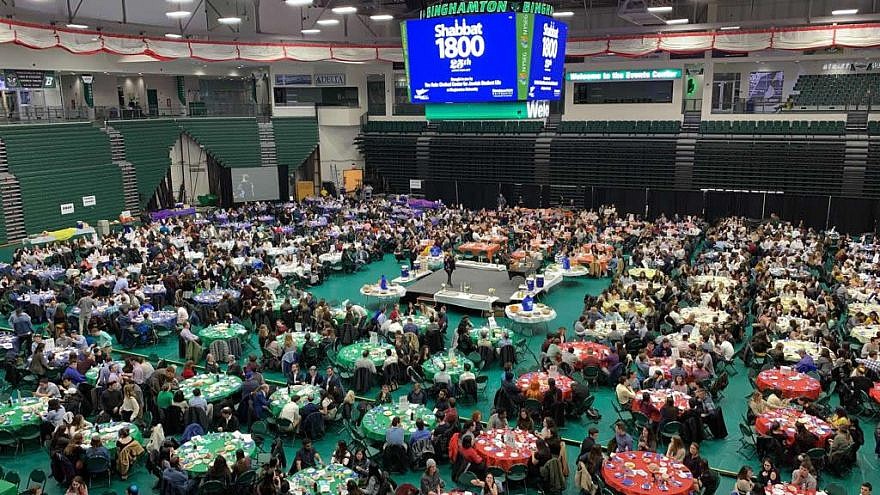While Israelis spent their Shabbat on April 5 gearing up for national elections, a group of Americans—a very large group, at that—was getting their Shabbat underway with a little more than the usual pre-preparations. That’s what happens when nearly a couple of thousand people are about to eat, pray and revel in one room.
The annual Shabbat 1800 dinner went off without a hitch at Binghamton University in New York state, uniting a diverse group of college students (with some faculty members sprinkled throughout room), as it has been doing for a quarter-century. In fact, it has held the national record for gathering the most Jewish students in one place for a Shabbat meal and celebration. But this year topped them all with a total number of 1,850 participants.
To date, more than 50 college campuses throughout North America and abroad have replicated this Shabbat-dinner model—running from Berkeley to Boston, and along the length of Canada; as well as in Argentina, Israel and the Netherlands—since its inception at BU in 1994.
Joshua Udler was present at that very first dinner, as he was at this 25th anniversary event, accompanied by his wife and fellow alum, Jennifer.
“It was a phenomenal experience—just to see the sheer growth of the event and the appeal to such a large Jewish community,” said the 44-year-old father of three, a renewable-energy attorney who lives in Maryland. A 1996 graduate, he said he recently visited with his teenage son, who is considering applying to the school.
“I see it all on a much grander scale now,” said Udler of both the university and the Shabbat dinner. “There are so many different observance levels there. It was all very humbling.”
When he attended, he served as student president of the campus Chabad center, led by Rabbi Aaron and Rivkah Slonim, and helped plan that first dinner, which has always been free of charge for students.

‘Spirituality is a journey’
“The program, originally named Shabbat 1000, was conceived by the Rohr Chabad Center for Jewish Student Life in Binghamton in 1994, and has seen tremendous success at BU and been duplicated on many campuses across the nation,” said Rabbi Aaron Slonim, executive director of the Rohr Chabad Center. These days, three emissary couples work at Chabad at BU.
Development and program director Rabbi Levi Slonim, who was 10 years old when Udler was a student, added that “a program like this can only succeed where there is a well-established Jewish infrastructure, and a vibrant and dedicated core of Jewish students. Otherwise, you can’t even consider attracting this amount of guests. It’s a real tribute to our student leadership and organizing committees.”
The dinner was highlighted by Shabbat traditions such as candle-lighting; the reciting of the Kiddush, “Hamotzi” and “Grace after meals” prayers; traditional songs; and even some dancing.

“It is a massive undertaking—there are many, many students involved in the project,” said senior Joey Kirsch, who along with Shira Ellenbogen (Class of 2022) and Hannah Blas (Class of 2021), coordinated the event with the help of 235 others. “But everybody agrees it’s worth all the effort to see so many people involved in and enjoying their heritage and traditions.”
In addition to the herculean effort and grit, the event involved massive amounts of food. It required some 750 pounds of chicken, 350 pounds of challah, 1,800 matzah balls and nearly 200 22-oz. bottles of grape juice—not to mention umpteen bowls of salads and plates of kugel.
Professor Dora Polachek, director of undergraduate studies in the Department of Romance Languages and Literature at Binghamton University, and an instructor of French, has attended similar events over the years and said she remains in awe of the amount of work involved in such an undertaking—and how smoothly it all goes.
She said the event provides an opportunity to see Judaism at its best: up close, personal and highly inclusive.
“College has the potential of being overwhelming, given the sheltered environment of living at home prior to coming,” said Polachek, who holds a bachelor’s degree from Barnard College, a master’s from New York University and her Ph.D. from the University of North Carolina at Chapel Hill. “Binghamton is large enough to offer many options to connect to one’s heritage. At the same time, it’s small enough to get to know your professors, as well as to connect to a form of Judaism that feels right.”
“Spirituality is a journey,” she pointed out. And with events and interaction like the Shabbat dinner, “students are able to foster close friendships with others on that journey.”


























